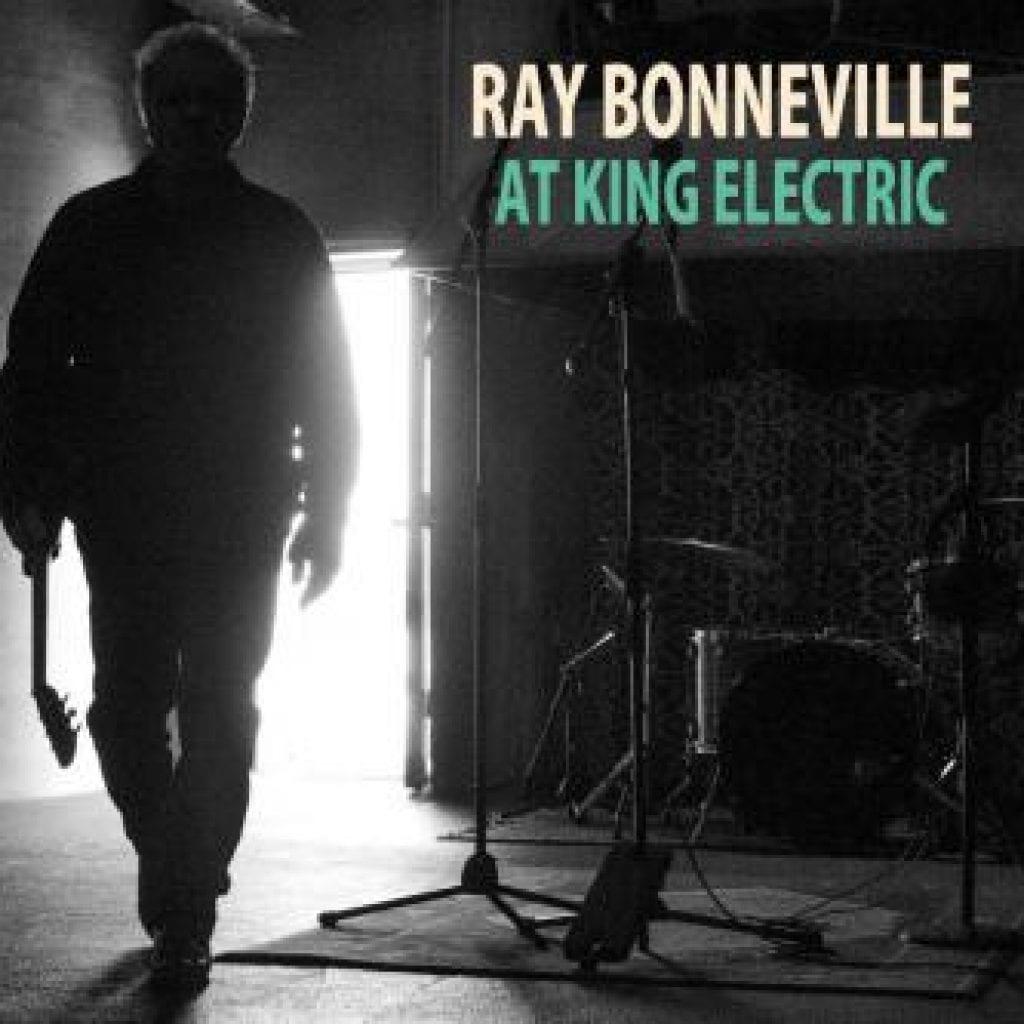Ray Bonneville’s subtle genius on display on his latest release At King Electric

Ray Bonneville opens his latest release, At King Electric, with the kind of understated world weary grace and lyrical punch that JJ Cale made his calling card. On his ninth album Bonneville displays the discernment that some artists never attain, namely that he realizes the strength of his songs lies not in what he puts into the recording, but rather, what he leaves out. His songs work the way an emotionally charged conversation does, one in which the person who shows the most restraint has the upper hand. What Bonneville doesn’t say speaks loudest.
By choosing tasteful yet spare arrangements Bonneville challenges the listener to pay attention. A natural storyteller, he knows that glossy production leeches the power out of the narrative. And Bonneville’s voice lends authority to every lyric. His unvarnished take on human nature is informed by years of life on the road.
It all starts with “Waiting on the Night,” the solitary existence of a man left with the memory of his ex-lover. Without describing the setting Bonneville manages to conjure a scene, set in a rundown motel, or in a dilapidated shack, of a man sitting on the edge of the mattress. Night is coming, and with it a host of memories.
In a suitcase under the bed
Lie things left unsaid
Let us out they sigh
We belong to the night
“Tender Heart” finds Bonneville going in the opposite direction, laying out set details effortlessly. Over a languid shuffle Bonneville’s character observes, “On a table by the door, in the slanting light lay the napkin she scrawled on and left behind.” The song paints a portrait of brokenness over a slow blues that is one part depression and one part resignation. This kind of unforced writing is not easy to pull off and depends on a skilled lyricist with a strong sense of his own voice. Bonneville has that in spades.
“South of the Blues” ambles along to a steady drumbeat set against a weirdly funky electric piano that implies a sense of isolation and purposelessness. Bonneville’s voice haunts the song like the shadow of a condemned tenement and his terse guitar solo functions like a jonesing junkie’s edgy nerves.
“Codeine” is about the seductive lies of the drug, and that sluggish existence in which the user finds himself. Despair hangs heavy in the atmosphere, and you can almost imagine the central character sitting alone having a solitary conversation with his chosen devil. It is another example of storytelling that once again proves we are in the presence of a master. www.theflamestillburns.com
Release date: September 7th




